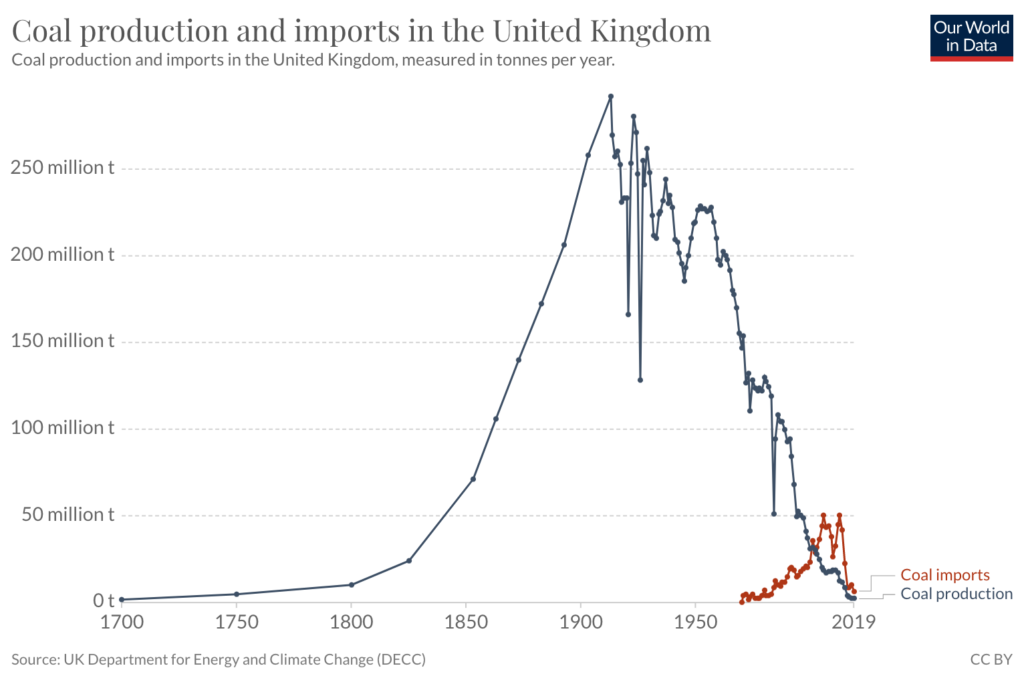In its heyday, coal was the king of heating. In 1913 coal extraction in the UK almost reached 300 million tonnes. By comparison in 2019 production was just a little over 2 million tonnes. A huge 99.33% reduction. Coal mines have closed year on year. Only 13 coal mines in the UK are in operation.

It’s now been announced that the UK will cease all coal power by October 2024. Anne-Marie Trevelyan, the Energy & Climate Change minister said that the move would “send a clear signal around the world that the UK is leading the way in consigning coal to the history books.”
The end of coal power was originally set for 2025. However, the government wanted to boost the UK’s credentials ahead of the all-important UN Climate Change Conference in Glasgow, which runs from 31 Oct to 12 November. More information about this conference can be found here.
The UK will still mine coal for export and for construction-related processes such as steelmaking.
Coal is the most carbon-intensive fossil fuel. It’s been calculated that coal-fired electricity accounts for some 30% of carbon dioxide emissions globally. It’s also a leading source of air pollution. It’s been reported that burning fossil fuels, in particular coal, killed over 8 million people globally in 2018.
Coal extraction in the UK has been diminishing on and off for the last 100 years, with spikes and dips giving way to a steady and pronounced fall. The UK was home to the world’s first coal power station in 1882. By 1950 an incredible 97% of the countries electricity was generated by coal.
While coal had its time and place, it served its purpose at a time when we were not aware of global warming. It’s now time to move forwards with renewable energy sources to take it’s place. A cleaner, greener planet is not just down to industry. You too can do your bit. Here are a few ideas:
Ideas for lowering your carbon footprint:
1. Stick aluminium foil or reflective panels behind radiators. This reflects heat back into the room rather than being absorbed into walls.
2. Turn your thermostat down to 18°C and put on an extra jumper.
3. Buy A-rated electrical appliances.
4. When using a washing machine ensure there is a full load and turn down the temperature.
5. Take your phone charger out of the wall. It uses energy even when it’s not charging your phone.
6. Turn off the tap while cleaning your teeth.
7. Make sure you defrost your fridge and freezer on a regular basis.
8. Defrost frozen food in the fridge as this helps to keep it cool as it thaws.
9. Buy locally produced organic food.
10. Turn off your computer monitor when you leave the office at the end of the day.








